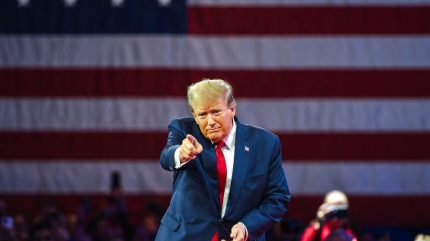
Planned US tariffs on goods imported from Mexico and Canada – including automotive products – have been postponed for a month. However, imports from China have been hit with a 10% tariff, to which China has immediately responded with a reciprocal round of tariffs on its US imports.
The last-minute agreements with Mexico and Canada were secured with agreements from both countries to tighten up border security to crack down on fentanyl smuggling and illegal immigration. The tariffs were due to be levied on Tuesday 4th February. Both countries will now be engaged in intensive negotiations with the US over border security arrangements and US trade balance concerns.

Discover B2B Marketing That Performs
Combine business intelligence and editorial excellence to reach engaged professionals across 36 leading media platforms.
However, China has been hit with a 10% import tariff and has immediately responded with an annoucement of retaliatory tariffs of 10% on certain US imports. Beijing also said it would restrict exports of certain minerals used in high-tech products and launch an antitrust investigation into Google.
In what is being seen as a measured response from Beijing, China’s new tariffs don’t come into effect until 10 February. They also apply to a smaller set of imported goods than the US ones.
US President Donald Trump is expected to speak to China’s leader Xi Jinping within the next few days – a move that some will interpret as an opportunity for further negotiation.
Mexico tariffs pause signalled negotiating posture from US
US President Donald Trump said yesterday (3rd February) in a social media post that the US will pause the implementation of new 25% tariffs on imports of goods from Mexico. As part of the agreement, Mexico will ‘immediately’ send 10,000 National Guard soldiers to the US-Mexico border to stem the flow of illegal drugs – notably fentanyl – from Mexico into the US.
The agreement also includes a commitment from the US to take action to prevent the trafficking of high powered weapons from the US to Mexico.
On his Truth Social network, Donald Trump said that the month long pause to enforcing trade tariffs will enable negotiations “headed by Secretary of State Marco Rubio, Secretary of Treasury Scott Bessent, and Secretary of Commerce Howard Lutnick, and high-level Representatives of Mexico.”
“I look forward to participating in those negotiations, with President Sheinbaum, as we attempt to achieve a ‘deal’ between our two countries,” he wrote.
In a post on X, Mexico President Claudia Sheinbaum said that “our teams will begin working today on two fronts: security and trade.”
In a press conference reported by the BBC, Sheinbaum said: “We have this month to work and convince ourselves, among everyone, that this is the best path.”
The US President has also said that he will speak with Canadian Prime Minister Justin Trudeau later today (Monday 3rd February) head of the planned imposition of 25% import tariffs (10% on energy products) on Canadian goods.
The auto industry is a sector of North America’s economy that is particularly vulnerable to trade disruption and higher costs due to the heavy integration of complex automotive supply chains across the US, Canada and Mexico.






